Bank Protection or Digital Punishment? What Happens When You’re Locked Out of Your Own Money
Executive Summary
Banks play a critical role in protecting customers from fraud. But sometimes, their fraud processes cross the line from protection into punishment — leaving innocent people locked out of their own money. In a digital-first, cashless society, this can be devastating for families who rely on online access for everyday financial life. This blog explores what happens when banks get it wrong, why it matters, and how to protect yourself.
Imagine this: You log in to pay a bill, transfer money to your partner, or use your digital credit card — and suddenly, you’re locked out. No access. No explanation you can understand. Just an endless "call back in 48 hours” from the fraud team that somehow stretches into weeks.
That was my recent experience with my bank.
A friend of 20+ years transferred money into my account. His bank flagged it. My bank froze my internet banking. And despite being innocent, with a spotless 35+ year history as both customer and employee, I was treated as guilty until proven otherwise.
What actually happens when the bank “protects” you
Fraud teams do important work. Every day, they stop scams and save people from losing life savings. I respect that.
But here’s the flip side:
You’re cut off from your own money. Savings, transfers, BPay, even your digital credit card.
Your credit card due amounts can’t be paid. Which may eventually mean declined payments for essentials like groceries or petrol.
Call centre access is limited. Many online enquiries require identity checks using internet banking details. Without access, you’re forced back to old-school identification methods.
You have no control. No transparency, no real timeline, and no way to prove your innocence quickly.
It feels less like customer protection and more like digital punishment.
Why this matters for families
I can cope because I have other accounts. But what if this was someone’s only bank account?
Bills would bounce.
Credit card balances would fall overdue.
Petrol and supermarket payments could eventually decline if cards were blocked.
Rent or mortgage payments could fall into arrears.
Wages or government payments could land in an account you can’t access.
For many families, that’s not just stressful — it’s catastrophic.
Don’t put all your eggs in one basket
This experience highlighted a bigger truth: if your whole financial life is with one bank, you’re vulnerable.
It’s the modern version of “all your eggs in one basket.” Banks can (and do) make mistakes. Systems crash. Transactions get flagged. And while they “investigate,” you’re left powerless.
What you can do
Have a backup account. Even a basic account with a second bank gives you an escape hatch.
Store critical details offline. Account numbers and recent transaction amounts are often required to pass identification when calling your bank. Without internet access, you may need to physically visit a branch — and wait while they escalate to the fraud team.
Expect delays. If something is flagged, don’t assume 48 hours means 48 hours. Plan accordingly.
Talk with your partner/family. Make sure both of you know the backup plan if digital access is cut off.
The bigger picture
Banks struggle to strike the right balance between convenience and security. The trend is clear: access safety — and the inconvenience of losing it — will become just as important a factor in choosing a bank as fees and interest rates.
Fraud prevention shouldn’t come at the expense of treating innocent customers like criminals. In a digital-first, cashless society, cutting people off from their own money isn’t just an inconvenience. It’s a risk.
Final Thought
Banks may hold your money, but you hold the responsibility to protect your access. Don’t wait until you’re locked out to find out just how vulnerable you are.
Frequently Asked Questions
Q: What should I do if my bank freezes my account?
Call your bank’s fraud team directly. Provide any documentation they request quickly. Ask for written timelines and keep records of your calls.
Q: Can I prevent my account from being flagged?
Not entirely. Fraud systems are automated. But you can sometimes reduce risk by informing your bank before large or unusual transfers.
Q: Is it wise to have more than one bank?
Yes. Even a basic secondary account ensures you can still access "emergency" money if one bank has issues.
Q: Why do banks ask for account numbers and transactions to identify me?
It’s a standard fraud-prevention measure. But if you’re fully digital, make sure you keep a secure offline copy of your details.
Q: Should I keep cash at home?
A small emergency float can help, but don’t rely on it in this digital world. Focus on maintaining access to at least one digital account.
Disclaimer: This is not financial advice. The information provided is for educational purposes only. Please consider your personal circumstances or seek professional advice before making financial decisions.

